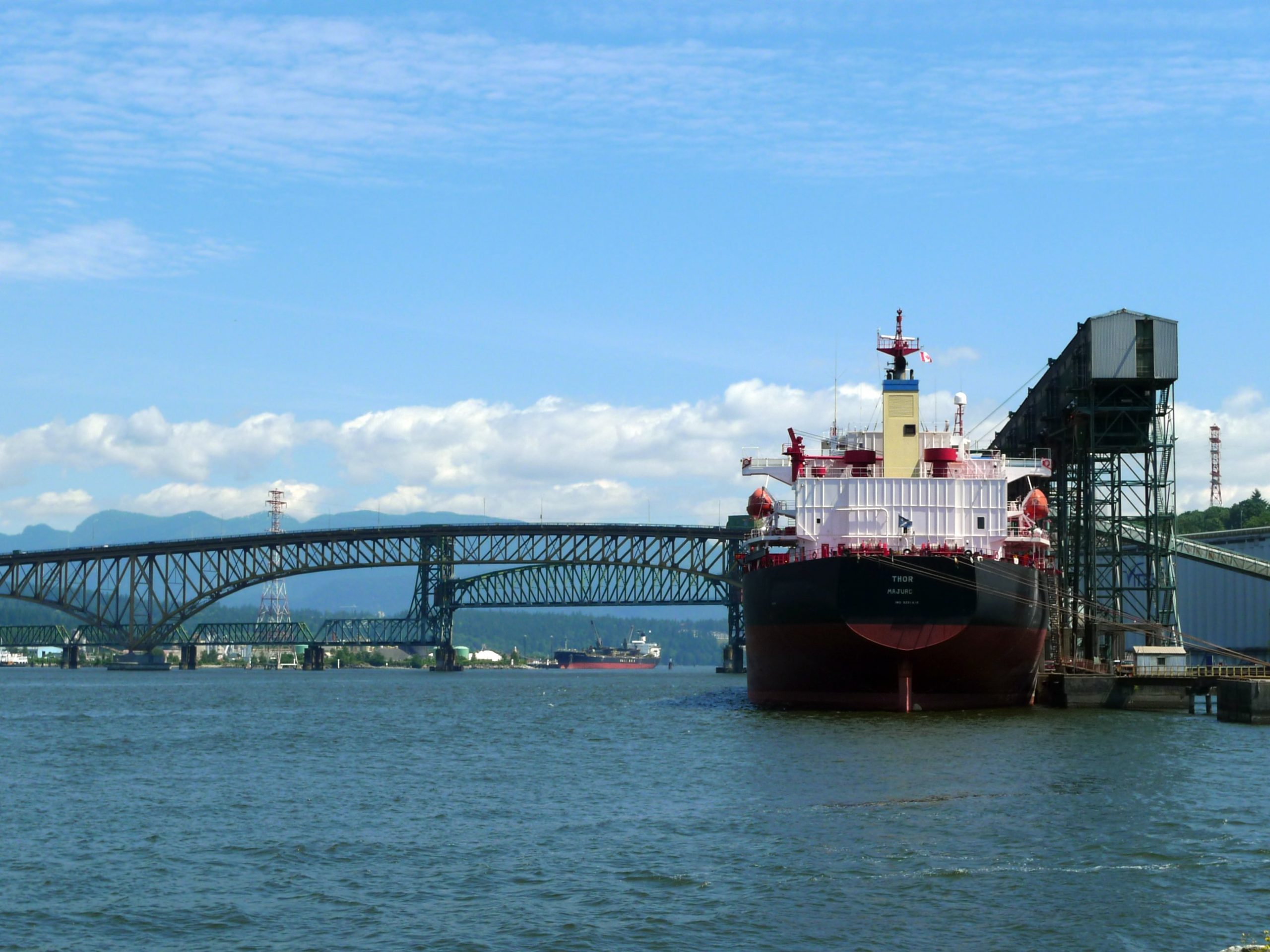
Photo: Harold Cecchetti, Flickr
Indian Arm has been described by many as a magical place to experience—and for good reason. Chum, Coho and Chinook swim upstream each year to reach the Indian River estuary. It’s home to the Nuth Khaw Yum Provincial Park, which is collaboratively managed by the Tsleil-Waututh Nation and the Province of British Columbia. It’s a favourite spot for outdoor enthusiasts to hike in the old-growth forests, kayak, canoe, scuba dive, recreational fish, picnic, and view wildlife. Its shores provide the backdrop to many residential communities and beaches. And it’s been the home of Indigenous Peoples in the region since time immemorial.
Geographically, Indian Arm is a 20km extension of the Burrard Inlet that is relatively small with a deep seabed. Its shallow entrance quickly deepens to approximately 200 metres. When considering the impact of any liquid pollutant entering into the Indian Arm, such as diluted bitumen that could result from spills from the heavy tanker traffic in the area, it is likely that spilled oil would sink were it to get into the basin. The impacts on the local environment would be devastating and long lasting.
Spilled bitumen can travel with the tides until it weathers, its higher density dragging it deeper, causing it to sink into the basin and settle along beaches. For Indian Arm, this means that spilled diluted bitumen could easily make its way to the depths of its seabed.

Photo: Guilhem Vellut, Flickr
Science shows that diluted bitumen can sink.
Here in B.C., we aren’t prepared to respond to oil spills, partially because spill response is led by industry rather than by local governments and citizens. There is a lack of inclusion of local knowledge that would help to protect communities and the marine environment after a spill from the current levels vessel traffic in the Burrard Inlet and beyond, a situation that would be exacerbated if there were an increase in tanker traffic.
In the case of Indian Arm, removing bitumen by natural processes would be incredibly difficult. To flush it out, there needs to be a deep water exchange, however, those are infrequent. Much of the water in Indian Arm comes from surface water in the Strait of Georgia that has traveled with the tides through the Vancouver Harbour and parts of the Burrard Inlet. So whatever spills into Indian Arm would stay there.
The popular Deep Cove is likely to have the greatest impact from an oil spill because of its location at the entrance of Indian Arm.
The risk of a spill for Indian Arm region is real and the area has secondary and tertiary risks: the Westridge Terminal, formerly the Kinder Morgan Terminal, is nearby, and the tanker-passage required to navigate the area of the Second Narrows is narrow.
At the marine terminal, located at the entrance to the Inlet, heavy oil products from the Trans Mountain pipeline are loaded onto tankers. When transferring substances, there is always the risk of an oil spill (causing pollutants to enter into the marine environment) as was the case in Washington State’s Puget Sound in November 2019.
The Second Narrows is an area of difficult passage for large, newly-loaded Aframax tankers: it involves two bridges (a railway bridge and a highway bridge), an underwater municipal water line, changeable wind and tide conditions, and restricted daylight hours.
A group of professional engineers in B.C. is raising concern over the possibility of a tanker colliding with a bridge in the Burrard Inlet, and the associated risks to human lives, the environment and taxpayers.

Photo: Ruth Hartnup, Flickr
Whether the inadvertent release of oil were to occur at the Westridge Terminal, or during tanker transport through Burrard Inlet, the deep basin of Indian Arm—with its specific hydrographic conditions—is likely to be on the receiving end of that spilled oil that would remain in the body of water, poisoning the marine environment and doing irreparable damage.
Based on information by: A.G. Lewis, Emeritus Prof., EOAS, UBC.
What you can do
Right now, indigenous nations are in court fighting the Trans Mountain tanker and pipeline project and the threat it poses to places like Indian Arm. The Coldwater, Squamish, and Tsleil-Waututh Nations have stopped this project in its tracks before, and they can do it again. Pull Together and make a donation today!

Absolutely. The Western Canadian Marine Response Corporation has no equipment to clean-up a carcinogenic, diluted bitumen spill from a tanker from the bottom of the Burrard Inlet. A spill from a super tanker will spill over into the Deep Cove.